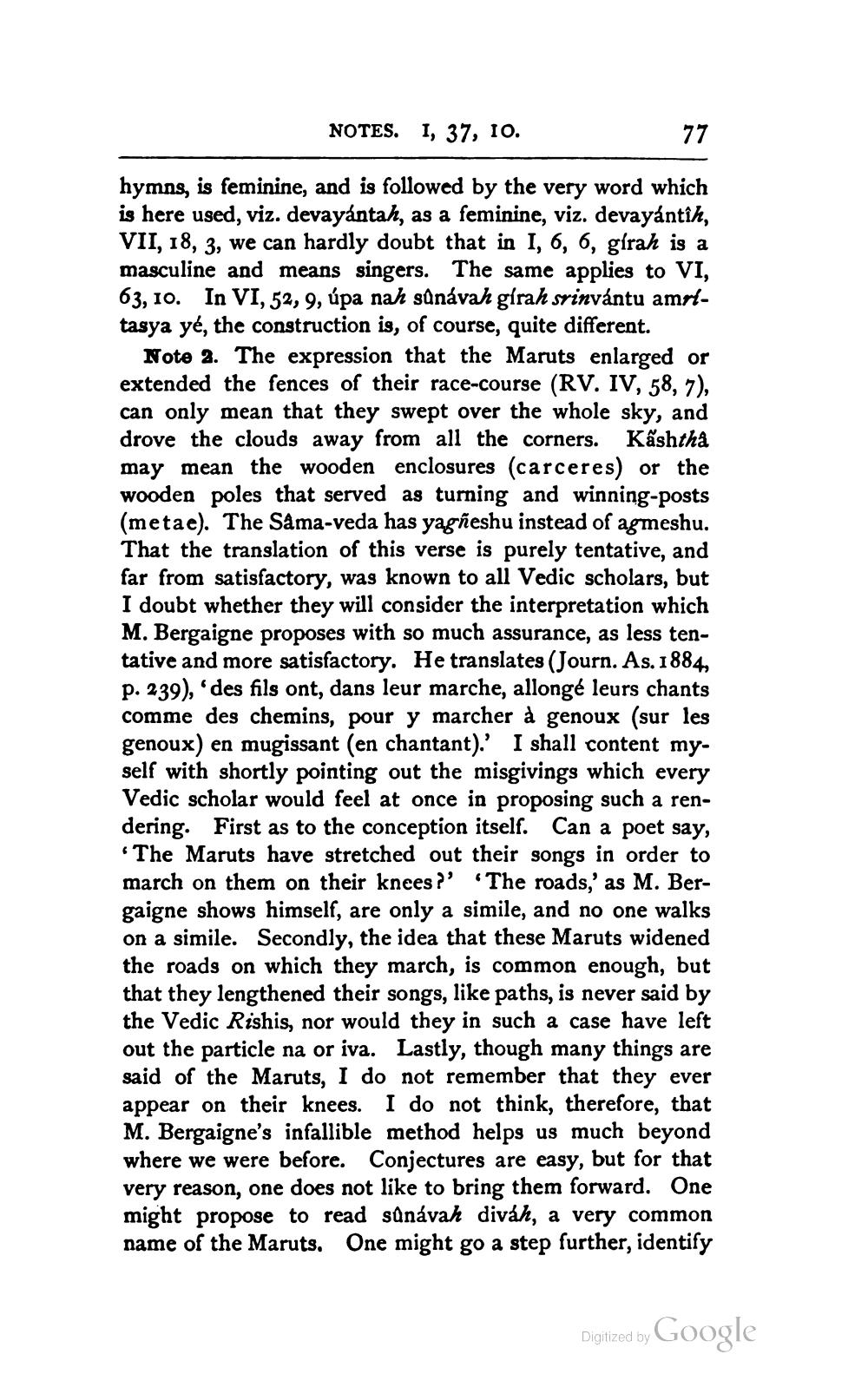________________
NOTES. I, 37, 10.
77
hymns, is feminine, and is followed by the very word which is here used, viz. devayántah, as a feminine, viz. devayántih, VII, 18, 3, we can hardly doubt that in I, 6, 6, girah is a masculine and means singers. The same applies to VI, 63, 10. In VI, 52, 9, úpa nah sdnávah girah srinvántu amritasya yé, the construction is, of course, quite different.
Note 2. The expression that the Maruts enlarged or extended the fences of their race-course (RV. IV, 58, 7), can only mean that they swept over the whole sky, and drove the clouds away from all the corners. Kashtha may mean the wooden enclosures (carceres) or the wooden poles that served as turning and winning-posts (metae). The Sama-veda has yagñeshu instead of agmeshu. That the translation of this verse is purely tentative, and far from satisfactory, was known to all Vedic scholars, but I doubt whether they will consider the interpretation which M. Bergaigne proposes with so much assurance, as less tentative and more satisfactory. He translates (Journ. As. 1884, p. 239), 'des fils ont, dans leur marche, allongé leurs chants comme des chemins, pour y marcher à genoux (sur les genoux) en mugissant (en chantant).' I shall content myself with shortly pointing out the misgivings which every Vedic scholar would feel at once in proposing such a rendering. First as to the conception itself. Can a poet say,
The Maruts have stretched out their songs in order to march on them on their knees?' 'The roads,' as M. Bergaigne shows himself, are only a simile, and no one walks on a simile. Secondly, the idea that these Maruts widened the roads on which they march, is common enough, but that they lengthened their songs, like paths, is never said by the Vedic Rishis, nor would they in such a case have left out the particle na or iva. Lastly, though many things are said of the Maruts, I do not remember that they ever appear on their knees. I do not think, therefore, that M. Bergaigne's infallible method helps us much beyond where we were before. Conjectures are easy, but for that very reason, one does not like to bring them forward. One might propose to read sūnávah diváh, a very common name of the Maruts. One might go a step further, identify
Digitized by Google




